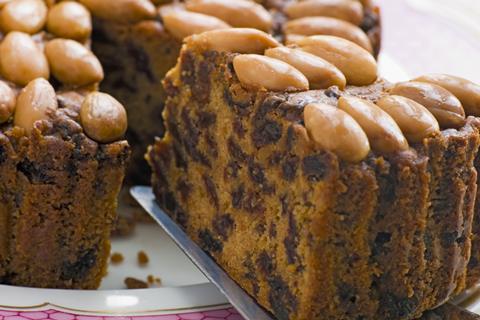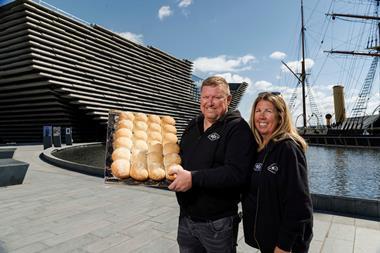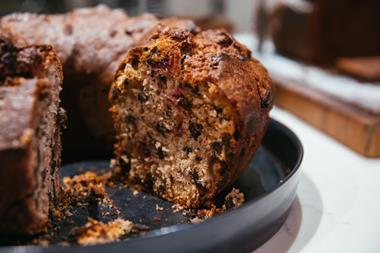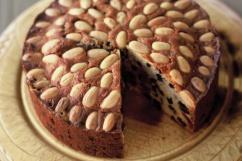
The bid for Dundee Cake to be granted protected geographical indication (PGI) status has been rejected by the government.
Makers of the cake, which is described as a moist, all-butter fruitcake with whole blanched almonds on top, had applied to have it certified under the PGI scheme meaning it has a reputation or characteristics specific to the area on the east coast of Scotland.
If successful, only cakes made to the agreed recipe in Dundee would be eligible to call itself Dundee Cake. It would have also joined the Cornish pasty and Melton Mowbray pork pies in the exclusive club of baked goods to have been granted PGI status in the UK.
However, the Department for Environment, Food & Rural Affairs (Defra) ruled this week that this was not the case, concluding that the name ‘Dundee Cake’ to be generic.
“Generic terms shall not be registered as protected designation of origin or protected geographical indications,” the notice states. “The Secretary of State [Thérèse Coffey] therefore considers that the conditions for registration of Dundee Cake as a protected geographical indication are not fulfilled.”
The decision has been met with mixed feelings.
The Dundee Cake bid was spearheaded by a committee comprised of members of The Baker Trade of Dundee and the city’s local council.
Campaign coordinator Martin Goodfellow, director at Scottish craft bakery chain Goodfellow & Steven, said the committee was “disappointed” by the decision.
“There is an appeals process, which we will be following to make our case in the hope of having this decision overturned,” he added.
However, Scottish bakers from outside the area, including several suppliers of Dundee cake, have previously voiced their objections to the bid, arguing that the specific flavour profile was more important than the location.
The situation has been rumbling on for a decade. An application was first submitted to Brussels in 2013, as the UK was then part of the EU’s scheme regarding protected food status. With a decision still pending from the European Commission two years later when Britain voted to leave the bloc, the committee lodged a bid under the domestic replacement scheme set up by Downing Street.
The application said Dundee Cake was ‘inextricably linked to the city of Dundee and its history and heritage’. It described the cake as a rich, moist, all-butter ‘afternoon tea’ fruit cake, studded with juicy sultanas, flavoured with Seville orange, and decorated with blanched whole almonds. Traditionally round, it should smell sweet and buttery and have an aroma of bitter orange.
The recipe was said to have been developed in the late 1700’s by the family of Janet Keiller, whose shop in Dundee traded in artisan confectionery, preserves and cakes. Janet had invented a new type of spreadable Seville orange marmalade, and the shop’s new cakes were flavoured with candied orange peels leftover from the marmalade-making season along with other ingredients imported from Spain.
































No comments yet